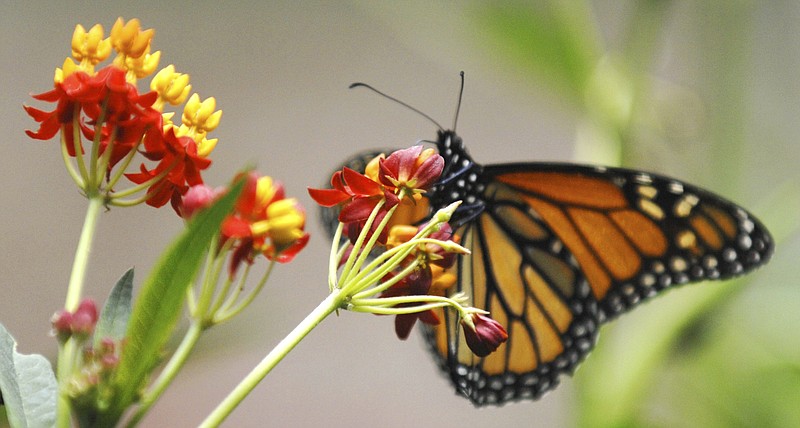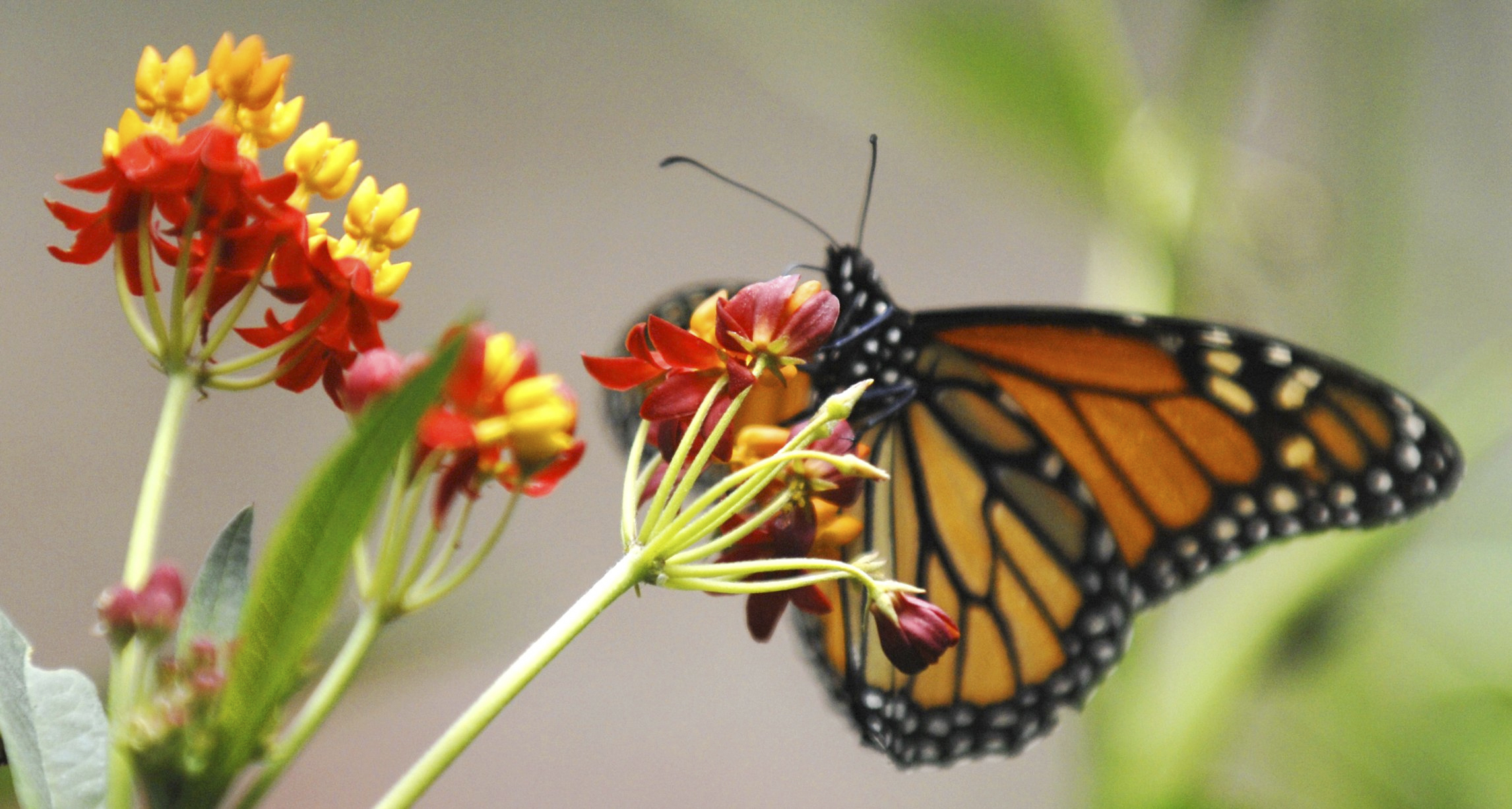Butterflies, like many beautiful, delicate creatures, are ever so particular. They enjoy certain plants from which to drink nectar and others on which to plant their eggs.
"Butterflies can use nectar from lots of different plants, but they're very specific about where they lay their eggs," said Christine Bock, lead horticulturalist at the Tennessee Aquarium. She planted the butterfly garden there and also plants her home garden to attract them as well.
Monarchs prefer milkweed, while swallowtails are attracted to members of the parsley family. Bock said she also plants passion vine to attract fritillaries.
Encouraging the butterflies to plant their eggs leads to proliferation. "Year after year, you'll have butterflies."
However, she said she also wishes to have nectar for the butterflies to drink, so she has zinnias and coneflower. Those are nectar plants, along with butterfly bush and butterfly weed. Zinnias, she said, are easy plants for beginning gardeners, as are salvias and globe amarynth.
Her favorite butterflies, she said, are monarchs. "I watch the monarchs lay one egg per leaf on the milkweed, and I watch them grow and eat the milkweed and then I see them make their chrysallises."
5 Tips
- Be sure to plant both nectar and larval (egg) plants.
- If you want to attract specific kinds of butterflies, find what plants they are attracted to. Monarchs enjoy planting their eggs on milkweed, while little yellows prefer cassia and clover.
- Check on seed packages for the note "butterfly attracting." Zinnias, aster, butterfly bush and Joe Pye Weed are among the popular nectar plants.
- Don't be so quick to cut back violets or other wildflowers to make the garden look neat and pristine. "You have to let things be. The more you allow things to be natural, the more wildlife you'll have."
- Avoid pesticides. They're less safe for butterflies and other living creatures. "[Butterflies are] part of the web of life," said Bock. "You don't want to remove any part of that. You're making more of an animal habitat. You're helping butterflies to live. You're promoting biodiversity. You're offering more food to the wildlife."
Contact Holly Leber at hleber@timesfreepress.com or 423-757-6391. Follow her on Twitter at twitter.com/hollyleber

